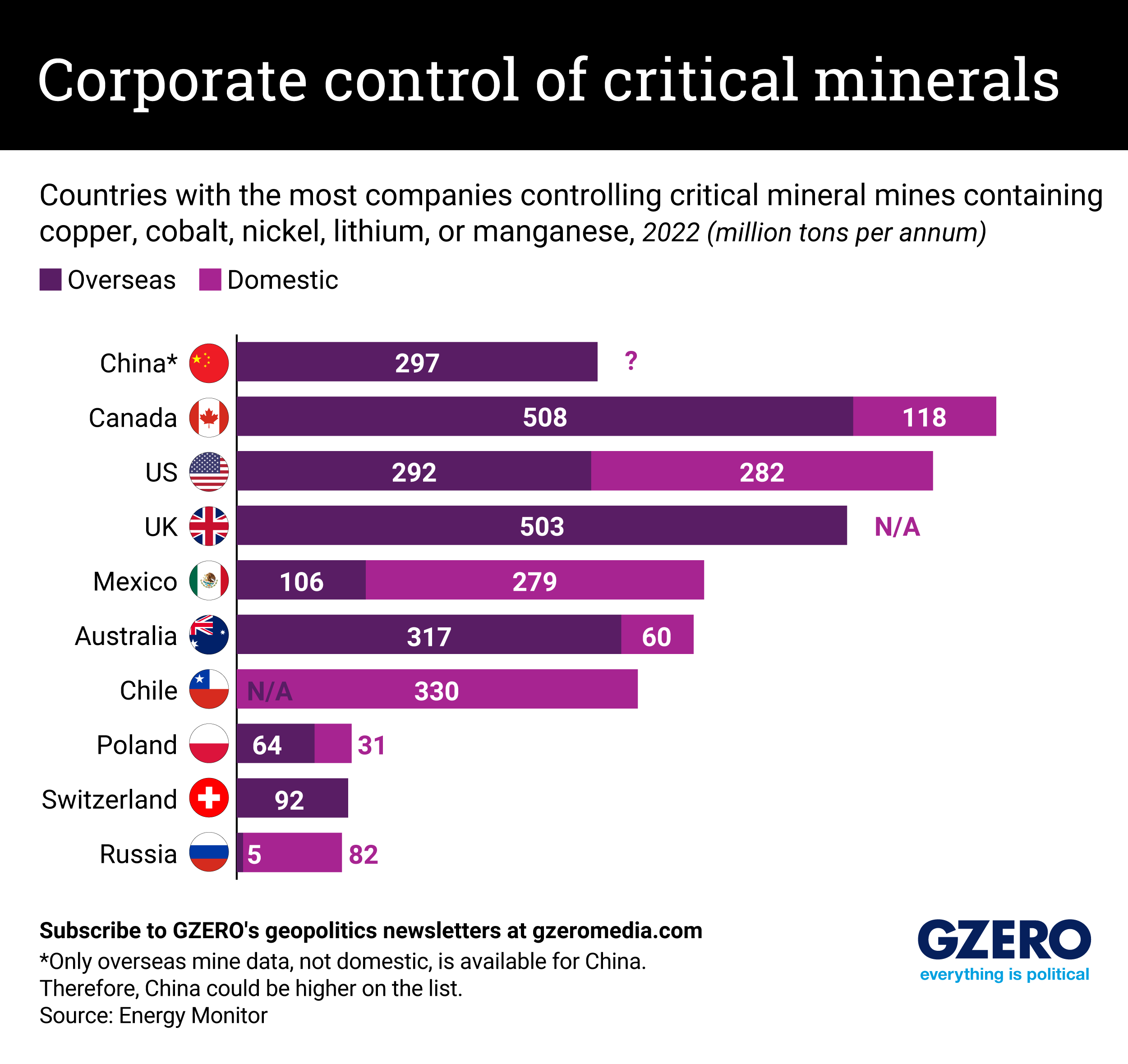The global energy transition is well underway, but for green energy to replace fossil fuels, the world needs as many critical minerals as possible — and fast. Critical minerals like copper, nickel, lithium, and manganese are essential to solar and wind energy, electric vehicles, and the storage of green energy. High demand has kicked off a global race to control critical mineral supplies.
This graphic looks at which countries dominate corporate ownership of the critical mineral supply – meaning which countries have the most companies that have either majority control or the largest stake in mines that produce copper, nickel, lithium, or manganese.
Because of data gaps in the amount of domestic critical mineral mines China has, its position as the undisputed global leader in critical minerals is not represented on this graph. China is estimated to control 60% of the critical mineral market, and the US and Canada are racing to catch up. To do so, they entered into the US-Canadian Join Action Plan in January 2020 to boost critical mineral production in North America. Four years later, here’s where things stand.
